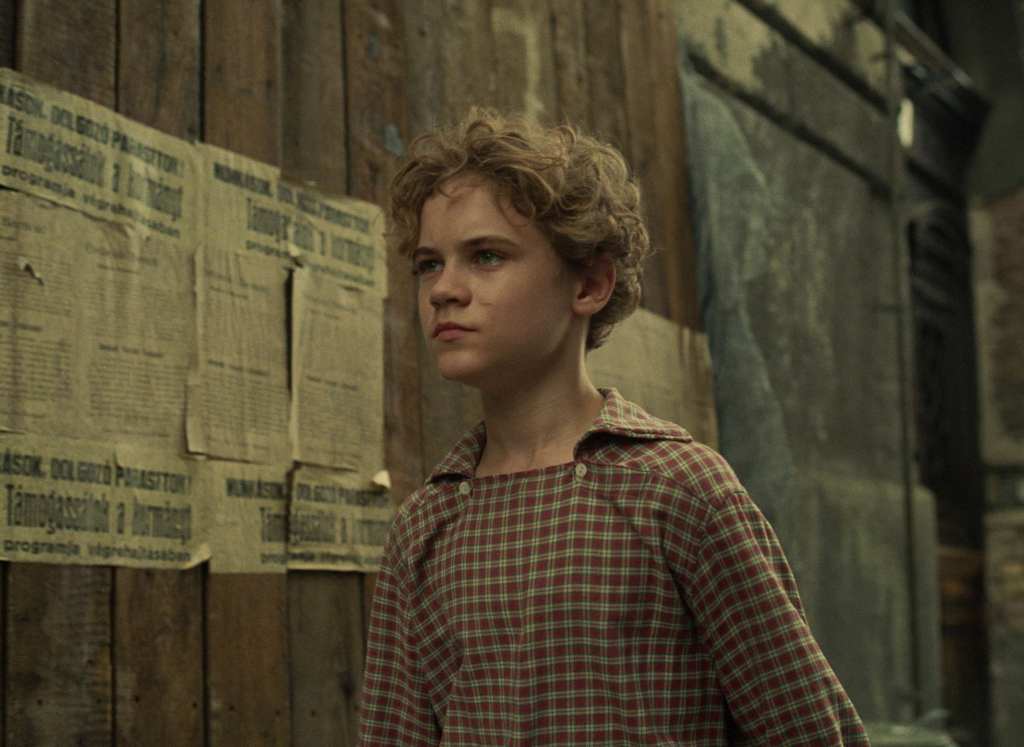Lest we forget that film festivals are a platform for the serious art of cinema, Hungarian auteur László Nemes makes it three for three with Orphan, another visually stunning but intellectually austere exploration of the Jewish experience in Europe during the mid-20th century. There’s a bar-room brawl involving a pierrot, and it ends at a funfair, but Orphan is every bit as earnest as Nemes’ debut, the searing Holocaust drama Son of Saul. Perhaps because that film raised the bar so high, the director has struggled to match its breathtaking intensity ever since, and, though its style and attitude put its peers to shame, Orphan, even more so than his last film Sunset, is something of a letdown, a tantalizing premise that promises to bring up hard geopolitical truths that never quite emerge.
It could be argued that the three films constitute a trilogy; having put a flag in the sand with Son of Saul, Nemes went back to the eve of the First World War for Sunset and now fast-forwards to the end of the Second World War, beginning four years after Germany’s surrender with a brief sequence that sees the young Andor Hirsch being released from a Hungarian orphanage into the care of Klára, (Andrea Waskovics), the mother he has never known. “Be patient with him,” she is told. “He doesn’t remember you.” Andor soon bonds with Klára, but later becomes infatuated with his late father, a ticket salesman with connections to the entertainment industry (escapism is a recurring motif), and an observant Jew, whose faith becomes of great interest to the boy.
The film has a heightened sepia glow that it will maintain throughout its running time, even though the film quickly jumps to 1957, after an attempted uprising led by Hungarian students has been recently and brutally crushed by the Soviet army. Andor is a teenager now (played by Bojtorján Barabás), and, along with his friend Sári (Elíz Szabó), the bombsites of Budapest are his playground, in freewheeling, atmospheric scenes that recall Roberto Rossellini’s Germany Year Zero (1948). In amongst the debris, Andor finds a gun, which, as you might imagine, immediately summons the ghost of playwright Anton Chekhov.
The immediate suspect to take possession of the firearm is Sári’s brother, who is wanted for his role in the failed revolution and is hiding out from police in a squalid disused building. Sári’s mother works with Klára at the local grocery store and, though she affects to know nothing about her son’s whereabouts, is actively trying to get him safe passage to America. And for a time, it seems that this might be the film’s trajectory, as Andor, a very rough-edged diamond, becomes briefly involved with his dreams of escape.
In the meantime, though, a new character is introduced, a rough-looking butcher with a motorbike and sidecar whose presence Andor’s mother seems to resent and accept in bafflingly equal measures. His name is Berend Mihály (Grégory Gadebois), a bear of a man who exerts a strange control over Klára. In contrast to Andor and his mother, Berend is not Jewish, a fact established when he brings a side of pork to their apartment. And as Berend insinuates himself ever deeper into his life, Andor identifies him as a mortal enemy, not knowing that there is much — much — more to this story than first meets his eye.
This subtle bait and switch from a national identity crisis to a personal identity crisis is imaginative and, for a time, intriguing, with Gadebois doing some very heavy lifting as the bad guy that means well but, nevertheless, behaves appallingly. Less convincing is the emotive motor of the film; Barabás is a great screen presence but the script by Nemes and his co-writer Clara Royer mostly just spins its wheels — once Andor has established his modus operandi (“All that sneakiness and anger,” as one character puts it), there’s really nowhere for him to go, since there aren’t really any shades of gray available to him. One can see it as a metaphor for postwar Hungary, and it’s a good one, being the story of a tyrannical imposition on a young dreamer’s life. For a movie, though, it lacks nuance, a one-note samba that’s rich in detail but needs a little more range and depth.
Title: Orphan
Festival: Venice (Competition)
Director: László Nemes
Screenwriters: László Nemes, Clara Royer
Cast: Bojtorján Barábas, Andrea Waskovics, Grégory Gadebois, Elíz Szabó, Sándor Soma, Marcin Czarnik
Sales agent: Charades
Running time: 2 hrs 12 mins

